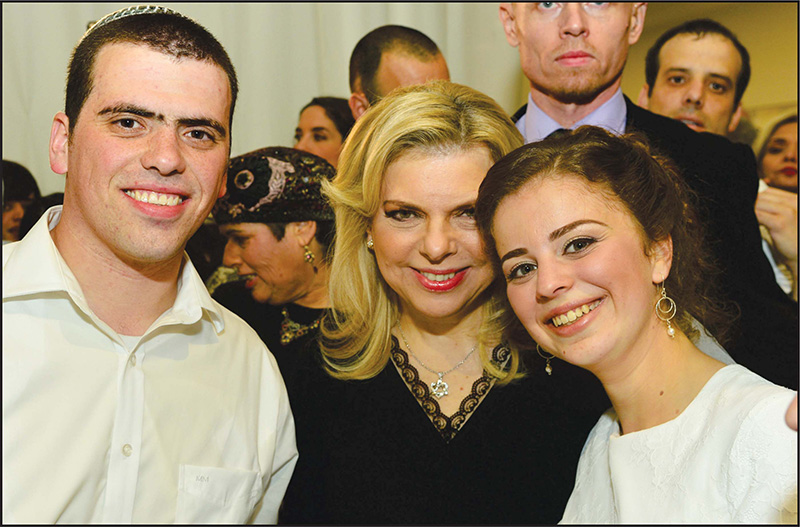Who is sara netanyahu, and why does she draw so much attention? That question appears in newsfeeds and in chats every week. I wrote this guide to explain her life in simple terms. It gives verified facts and clear context you can trust. I keep language plain and sentences short for easy reading. You will find background, key events, and a short FAQ at the end. I point to reputable reporting and court records for core claims. This piece focuses on sara netanyahu and the public debates around her. If you want a quick answer, sara netanyahu is a public figure with a mixed record. Check updates every week.
Short biography and background
Sara Ben-Artzi Netanyahu is best known as the spouse of a long-serving Israeli leader. She was born in November 1958 in Kiryat Tiv’on in northern Israel. She trained as an educational psychologist and later worked in guidance roles. Official profiles and public records confirm these basic biographical facts. Her role moved from private work to a public one when her husband led the country. She has served as the prime minister’s spouse in multiple non-consecutive terms. That public status explains why her private life often reaches national headlines. These simple facts set the stage for legal and political stories that follow.
Early life and education
Sara’s early life shows a mix of scholarship and public service in her family. Her father was an educator and published poetry and religious commentary. She served in a behavioral science role in the Israel Defense Forces. After military service she studied psychology at Tel Aviv University and at Hebrew University. Those studies led to her career helping students with learning and career decisions. Early roles gave her tools she later used in public appearances and programs. Knowing this background helps readers see her not only as a political spouse. It also explains why some of her public activities focused on education and youth. Official CV items and interviews provide the basic timeline.
Professional career and public role
In private life, sara netanyahu worked as an educational and career psychologist. Her work included student counseling and advising on educational paths and jobs. Her professional background sometimes informed public events she chose to support. As a public spouse she blended social and educational causes with official duties. Those activities varied from speeches to charity appearances and school visits. Psychological training can help with public-facing outreach and soft diplomacy. At the same time, public exposure means actions are interpreted through many lenses. Keeping a clear view of verified activities helps separate facts from spin. This blend of career and public life shapes how she is portrayed.
Marriage and family life
Marriage and family life have always been central to her public story. She married Benjamin Netanyahu in 1991 and they raised two sons together. The family has long been visible in the Israeli public sphere and in media coverage. Being the spouse of a long-serving leader brings constant attention and pressure. Private household decisions often become public topics under that kind of scrutiny. Even small domestic disputes can quickly become national headlines in that role. That reality helps explain how personal disagreements can escalate into political stories. The intersection of family and politics shapes much of what people read about her.
Duties and public profile
As the prime minister’s spouse, she performs both ceremonial and private duties. She attends state ceremonies, hosts official visitors, and supports social initiatives. She also takes part in diplomatic events and charity functions from time to time. Those actions are a mix of formal protocol and personal choice in her role. The position in modern democracies often blends symbolic duties with public influence. Her presence adds human and personal elements to formal state business. Because of that visibility, observers watch even small gestures and statements closely. Official profiles list engagements and state events to show the formal side of that job.
Public persona, food and social media
Her public persona often mixes domestic detail with state duties. She has been featured in cooking segments and shared recipes publicly. Short videos of family dishes gained attention on social pages and in the press. Those lighter stories usually sit beside heavier investigative reporting at times. The contrast between personal recipes and legal records makes public reaction complex. Some readers focus on the human, relatable side of her public persona. Others see domestic details as part of broader questions about privilege and spending. Reading both kinds of stories gives a fuller picture of how she is seen. Food and social clips can humanize, or they can sharpen criticism, depending on context.
Staff complaints and legal findings
Over the years, several former household staffers filed complaints and lawsuits. These complaints ranged from claims of insulting speech to long working hours and humiliation. Jerusalem labor courts examined testimony and in some cases ruled in favor of employees. Those rulings sometimes described conduct the judges found to be abusive or demeaning. Legal findings added an official record to earlier newspaper and TV reports. Her team often contested those claims and offered alternative accounts and denials. Still, court rulings increased public concern and made the allegations harder to ignore. Reading the court judgments helps separate legal findings from rumor.
The 2019 catering case
One of the most widely noted legal episodes came in 2019. Prosecutors examined whether state funds had paid for catered meals that should not have been covered. Under a plea agreement, she admitted to a lesser wrongdoing in that specific matter. The deal included repayment of sums and payment of fines to resolve the probe. It avoided a full criminal trial on the precise allegations about the meals. Different outlets framed the result with varied emphasis and tone. The episode shows how hospitality budgets and rules can collide with public expectations. Readers who want the legal details can consult the plea documentation and official filings.
Recent investigations and probes
More recent reporting prompted new probes into alleged harassment and pressure tactics. Investigative programs published messages and materials that raised legal questions. Israel’s attorney general ordered inquiries to examine whether laws were broken. Authorities are checking whether messages amounted to harassment of witnesses or opponents. These steps show how past controversies can lead to fresh legal questions and official action. Probes take time and depend on evidence, testimony, and legal thresholds to move forward. For readers, that means the matter can still evolve and new documents may appear. Stay tuned to official updates for final outcomes.
Supporters and critics: the public split
Public opinion about her splits sharply across political lines. Defenders argue she is a private spouse under unfair attack and that media focus is biased. Critics point to court rulings and legal deals to argue she acted above the expected rules. Both sides build arguments with public documents, media clips, and legal rulings. This polarization mirrors wider divisions in Israeli society and politics. Understanding both perspectives helps readers evaluate claims and evidence. Instead of trusting a single headline, read multiple reputable outlets and the original court files where possible. That approach reduces the risk of partisan conclusions.

Wider political impact
Stories about the prime minister’s family affect debates about leadership and public trust. Controversies tied to senior figures can influence how citizens view institutions overall. When officials or their families face legal questions, voter confidence may be tested and debates may shift. That confidence matters for elections, policy, and social cohesion during crises. In many democracies, personal controversies ripple into public policy debates and electoral choices. That is why scholars, journalists, and voters follow these cases closely. Seeing the bigger political picture helps explain why a personal story gains national traction.
Conclusion — what to do next
To conclude, she is a public figure with a complex public record. She mixes a professional psychology background with lengthy political visibility. Her record includes social activities and legal rulings that drew criticism. Reliable reporting and court records help separate fact from rumor here. At the same time, strong opinions and politics shape how those facts reach readers. This summary aims to help you read headlines with context and care. Follow sara netanyahu‘s updates through trusted reporting and court portals. If you want more, check the cited reporting and official documents. Ask questions, and look for primary sources. That is how public life stays accountable.
Frequently Asked Questions
Who is she, in one short answer?
Sara Netanyahu is the spouse of Israel’s prime minister and a trained educational psychologist. She worked in guidance and student support before her public visibility rose with her husband’s political career. Because of that role, she appears at official events and public causes. That public status shapes much of the reporting about her. For a short, verifiable bio, consult official profiles and established news outlets.
Has she been convicted of a crime?
In 2019 she accepted a plea deal related to the use of state funds for meals in the official residence. The agreement included repayment of specific amounts and payment of fines. The deal resolved that probe without a lengthy criminal trial on that precise charge. Legal language matters here: a plea deal is a formal judicial outcome but is not identical to a full trial conviction on all original charges. For exact legal terms, read the official plea documents.
What was the catering case about?
The catering dispute centered on invoices and state payments for meals at the prime minister’s residence. Prosecutors examined whether certain meals should have been covered by the state budget. The plea agreement reduced the charges and required repayment of specific sums. That case is a clear example of how hospitality spending and public accounting rules can collide. Detailed reporting and court summaries explain the exact sums and timeline.
Were there staff complaints against her?
Yes, several former household staffers filed labor suits and complaints over the years. Some labor court rulings awarded damages or described demeaning conduct based on testimony. Her team contested many of those claims and offered alternative versions of events. Because courts issued rulings in some cases, those matters are part of the formal record and not only rumor. If you want precise findings, read the labor court documents for each case.
Why do these stories matter politically?
Stories about the prime minister’s family touch on public trust and the use of public funds. When top officials or their family members face legal or ethical questions, voters and watchdogs often take notice. Such stories can shape election debates or push demands for transparency. That is why journalists, analysts, and citizens track these developments and their legal outcomes.
Where can I read more and verify claims?
Start with established international outlets and reputable Israeli newsrooms. Check The Times of Israel, Reuters, AP, The Guardian, Haaretz, and court records for detailed and dated reporting. Official biographies and government pages give verified background. For legal detail, consult the published judgments and plea documents. Cross-check multiple sources to reduce bias and ensure you read the most accurate, up-to-date information.


